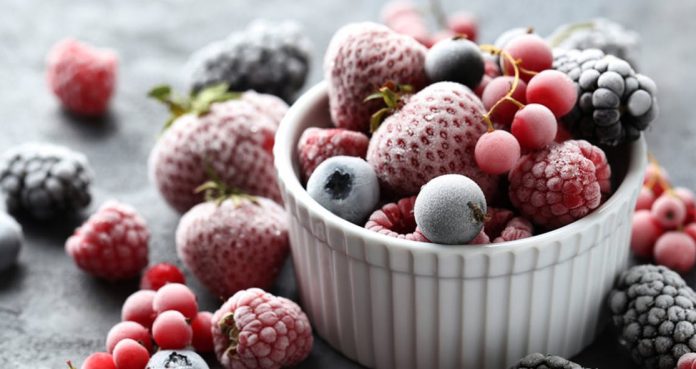There is strong evidence that eating fruits and vegetables is good for your health. But what will you do if your favorite fruit is not in the season, or your favorite vegetable will be eaten much later in the week? Well, it might be time to consider frozen.
If you go frozen, you can enjoy your favorite peaches or berries during wintertime. Plus, going frozen means less spoilage, which will allow you to enjoy produce when it is close to its nutritional best and whenever you want to consume it.
A study has revealed that frozen fruits and veggies can have as many nutrients as compared to fresh.
Lead study author Ali Bouzari said, “In terms of the ways humans have come up with preserving foods, freezing comes up at the top for preserving nutrients. If you can’t afford fresh or live in an area where a bodega down the street is all the access to products you can get, it’s important for people to know that frozen is a viable alternative.”
The director of the Plants for Human Health Institute at North Carolina State University Mary Ann Lila said, “Aside from preserving vitamins, freezing is the best way to preserve beneficial plant compounds that help protect against disease.”
A plant physiologist and national program leader for the US Department of Agriculture Gene Lester said, “Frozen produce is an especially worthwhile choice if you are not going to eat your fruits and veggies within a day or two.”
Lester explained, “Frozen fruits are commercially picked at the peak of ripeness and then individually quick frozen and packaged under a nitrogen atmosphere. Exposing fruits and vegetables to nitrogen helps to preserve nutrients that oxygen degrades, and also occurs with some fresh vegetables, like bagged greens.”
Vegetables that are intended to be commercially frozen are picked at peak ripeness. And unlike fruit, they are blanched before freezing, where they are treated with hot water, destroying enzymes that cause discoloration and loss of flavor.
Lester said, “Blanching keeps the bright green colors fairly bright green once they’ve been frozen and in storage — otherwise they can take on a grayish or brownish look.”
Blanching may also change the structure of the fiber, making vegetables easier to chew because they get softer and less crunchy. Lester explained, “But with blanching, you can lose up to 50% of vitamin C, which is heat-sensitive.”
The plant physiologist said, “If you pick vegetables at their ripeness peak, they’ve got their greatest abundance of nutrients, vitamins and minerals — and that can be anywhere between 10% and 50% more than something that is commercially harvested as fresh.” A professor in the Department of Food, Bioprocessing and Nutrition Sciences at North Carolina State University Mario G. Ferruzzi said, “When you compare fresh string beans in a store versus frozen, frozen will almost always be higher in nutrient content, because they were picked and processed at the highest point of quality and then frozen to preserve them.”























